Members of Council are responsible for the overall governance and strategic direction of the Society.
The Council of the Society of Antiquaries of Scotland is the Board of Trustees of the charity. It is comprised of voluntary members who are all Fellows of the Society elected by the Fellowship during the Anniversary Meeting on the 30th November each year or co-opted by Council. It is Society policy to aim to have a gender balance on Council and seek to improve its diversity.
Law 11 states: “The Council shall consist of at least twelve Fellows elected by the Society, the Society representative of the National Museums Scotland (NMS) ex officio who is already a Fellow of the Society (nominated by the NMS Board of Trustees) and up to two co-opted persons appointed by the Council to fill a vacancy on the Council. The total number of members of the Council shall not exceed fifteen at any time.”
As defined in the Laws, the Officers of the Council include the President, two Vice Presidents and the Treasurer. The President is elected for a period of up to three years and may stand for a second term, subject to Law 16. The Treasurer is elected for one year and, again subject to Law 16, is eligible for re-election. The term of office of the President and the Treasurer respectively may not exceed six years in total. The Vice-Presidents are appointed by the Council from amongst the elected members of the Council. The Vice-Presidents are appointed for an initial term of up to three years and may be appointed for a further term of up to three years, subject to Law 16. Law 17 states that no member of Council may serve longer than nine consecutive years.
A representative from the National Museums Scotland (NMS) is an additional Ex Officio member of Council nominated by the NMS.
Fellows putting themselves forward for election to Council complete a form provided for the purpose and will require four Fellows to support their nomination. Both the applicant and the four supporting Fellows should not have subscription arrears; new Fellows shall have paid their initial subscription.
Applicants must fulfil the legal requirements set by OSCR for becoming a trustee and sign up to these requirements on application, as well as a GDPR declaration. Applicants will also be required to sign up to a Trustee Declaration Form on application.
Applicants will be required to provide a short statement of no more than 400 words for publication alongside their name on the ballot paper.
Applications will be examined by Council who will put a list of candidates to the Fellowship, stating which, if any, are especially supported by Council to provide them with the skills and expertise they require.
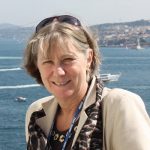
Diana Murray CBE
Diana has been involved as a Trustee in the governance of a number of charitable bodies including the National Trust for Scotland, The Royal Botanic Garden of Edinburgh, The Scottish Seabird Centre in North Berwick and the Scottish International Education Trust. She was the Chair of Arts and Business Scotland until 2022 and currently chairs the Scottish Association of Marine Science (SAMS), an academic partner of the UHI. She has just been appointed to the Scottish Committee of the National Lottery Heritage Fund.
Email the President at president@socantscot.org
Deborah Lamb has been involved in archaeological excavation since her teens and has worked on a range of sites in Shetland, Orkney and Caithness. After a degree in Classics at Girton College, Cambridge, Deborah qualified as a Chartered Accountant and soon after moved to Shetland initially to manage the Council’s oil money and latterly to direct a major Council department. After early retirement she completed a PhD in archaeology. She has been an Honorary Research Fellow with the UHI and her publications include archaeological articles in edited volumes and conference proceedings, as well as a wide range of book reviews for the ‘Shetland Times’. Equipped with both management and training qualifications she now offers courses in business and management skills, and is a qualified tourist guide. Her other interests are sea kayaking and Fair Isle knitting.
Suzanne Lyle is a grant funder, curator and art historian in my professional life and my research background focuses on illuminated manuscripts made for figures in the Scottish court in the early sixteenth century. I would bring the skills, knowledge and experience that I have gained working in the heritage and arts sectors over the last nineteen years. I was appointed as the Head of Visual Arts at the Arts Council of Northern Ireland in 2009. Throughout my time at the Arts Council, since 2002, I have been Collection Curator, responsible for the care, management and use of the Arts Council Collection. I am also responsible for overseeing grant funding in the visual arts sector which includes visual art, craft, public art and architecture. I work with a wide range of visual arts and craft-based organisations and individual artists. I have served on a number of local and national heritage related committees including the Ethics Committee of the Museums Association, the Culture Committee of the UK National Commission for UNESCO and I have served as a member of the Historic Monuments Council of Northern Ireland.
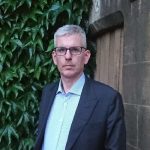
Dr Kenneth Aitchison
Kenneth is the Founder and CEO of Landward Research Ltd, a consultancy that he established in 2010 that works in the heritage, culture and international development sectors.
He is also currently CEO of FAME, the Federation of Archaeological Managers and Employers, the trade association for commercial archaeology companies in the UK and Ireland. Previously, he worked for the Chartered Institute for Archaeologists for nine years as the Head of Projects and Professional Development, and worked in archaeology in Scotland, England, France and different countries in south-west Asia before that.
He has been a Fellow of the Society of Antiquaries of Scotland since 1993.
A graduate of the University of Edinburgh, he was awarded his PhD by research publication in 2011 for work on ‘Supply and Demand in UK commercial archaeology from 1990-2010’. He also studied for a Masters in Landscape Archaeology at the University of Sheffield.
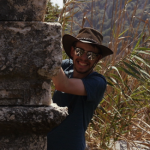
Sam Mills FSAScot
Sam Mills is an independent archiving and heritage consultant. He is currently working on a four-year archival project for Kirkdale Archaeology, where he is responsible for managing the processing of all types of post-excavation material. He has previously worked for other membership organisations, where he managed the accounts and communicated regularly with members. He is interested in how archaeology and heritage can adapt and stay relevant to current events, and believes that an increase in diversity in the heritage sector is a key way of attaining this goal.
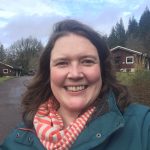
Dr Manda Forster
Manda Forster is the Director of Operations at DigVentures, a social enterprise specialising in community focussed archaeology and heritage projects. Working as part of a dispersed team, Manda relocated to the west coast of Scotland in 2017, having spent several years working at the University of Birmingham and Birmingham Archaeology, followed by a stint at the Chartered Institute of Archaeologists promoting the work of the institute. Throughout her degree at Bradford University, Manda spent summers digging in Shetland, inspiring her to pursue a PhD researching early medieval trade in the North Atlantic, specialising in soapstone artefacts of Shetland, Greenland and Norway. Currently, Manda coordinates business delivery at DigVentures, as well as developing and managing projects in Scotland. Most recently, Manda directed investigations at Coldingham, working with community participants to look for evidence of an early medieval monastery in the centre of the village. Manda has a keen interest in post excavation processes and archives management, recently writing guidance for the management of digital data in archaeological archives in partnership with CIfA and supported by Historic England and the Archaeological Archives Forum.
Heather Pulliam is Head of Art History, University of Edinburgh. From a UK/US military family, Heather completed her MA Hons and PhD at the University of St. Andrews. Her work involves multiple heritage institutions and emphasises Scotland’s transcultural networks. Specialising in medieval Britain and Ireland, she has published on the Book of Kells, Lewis Chessmen, Pictish sculpture, and the Book of Deer. Her contribution to The Celts exhibition (British Museum/National Museum of Scotland 2015) traced ‘Celtic’ traditions, 900-1500. Funded by the Carnegie Trust and Henry Moore foundation, she has organized conferences ranging from Pictish Stones to the Celtic Revival. Her current project, funded by the Royal Society of Edinburgh, examines ‘Celtic Heritage,’ within a range of heritage institutions in Scotland and Ireland. Recent research funded by the Leverhulme Trust, examines the importance of environment in understanding ancient monuments. Her research and teaching emphasise that Scotland has long been an outward looking culture with meaningful ties to the rest of the world. As department head, she facilitated expanding the curriculum to one that is among the most global and inclusive in the UK. She is particularly interested in continuing the Society’s recent work on broadening student and international membership.
Formerly Professor of Christian Ethics & Patristics and Dean of the Faculty of Arts & Divinity at the University of Aberdeen, formerly Moderator of the General Assembly (2003-4), and formerly President and Professor of Patristics (now Emeritus) at Princeton Theological Seminary (2004-12). Formerly Dean of the Chapel Royal in Scotland and Dean of the Order of the Thistle, currently Pro-Chancellor of the University of Aberdeen and the chair of the Edinburgh Sir Walter Scott Club (2019-22). A trustee of the University of Aberdeen Development Trust and of several other bodies. A Fellow of the Royal Society of Edinburgh (2007), Knight Bachelor (2018), Knight Commander of the Royal Victorian Order (2019), Territorial Decoration (1995). As a student, I was a volunteer at the excavations in Colchester and St Albans, then Dalladies for 2 summers and at Fochabers. I led the project to build Princeton Theological Seminary’s new library and digitise over 100,000 books for free downloads. I am currently an advisor to HM King Abdullah II of the Hashemite Kingdom of Jordan for the UNESCO site of the Baptism of Jesus.
Having served Scottish archaeology in various capacities (including as Council member and Vice President of the Society of Antiquaries of Scotland) during my 32.5 year long employment in National Museums Scotland (1987–2019), I continue to serve Scottish archaeology during my retirement, including as the Society’s 2020 Rhind Lecturer; a contributor to various Regional
Research Frameworks (following my earlier work, 2008–2013, as Co-Chair of the National ScARF Neolithic panel); as a Board member of Urras nan Tursachan; and as a Trustee of Bute Museum, inter alia. I believe that my skills and experience pertaining to the heritage sector will be of use to the Society and I am keen to help the Society to flourish.
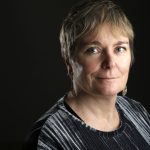
Professor Donna Heddle
Donna Heddle is Director of the Institute for Northern Studies and currently Acting Vice Principal (Research and Impact) at the University of the Highlands and Islands. She has won awards for cultural heritage course development and design. Her research interests are Scottish and Northern Isles cultural history, Norse and Renaissance language and literature, and cultural heritage tourism and she has led and is currently leading several national and international research and training projects involving cultural heritage tourism, including a project in Vanuatu and Fiji. She led the very successful Research Excellence Framework 2014 submission from UHI in Area Studies, which was placed first in Scotland for research impact (particularly in heritage tourism) and 5th equal with the University of Oxford for research environment for the whole UK. She was awarded a Personal Chair by UHI in June 2013 and became Chair of the UHI Tourism Group in August 2017. She is a trustee of the Scottish International Education Trust and a Board member of Museums Galleries Scotland (she was the first person ever asked to undertake a third term). She has a wealth of expertise, enthusiasm, and experience to bring to this exciting role, which she looks to very much enjoy.
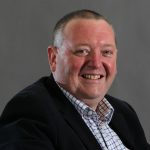
Professor Ian Baxter
Originally studied archaeology at Edinburgh University and completed a PhD at the University of Cambridge investigating strategic management within heritage organisations. He has worked for 6 Universities in Scotland and England mainly in Business School settings researching and teaching heritage management and interpretation, cultural heritage policy development, conservation and tourism management.
He joined Heriot-Watt University in 2016 where he is Professor of Historic Environment Management in the School of Social Sciences and Edinburgh Business School. He is Vice-Chair and Treasurer of the Built Environment Forum Scotland (BEFS) – the national representative body for heritage NGOs in Scotland and chairs its Historic Environment Working Group. Over the period of Covid-19 he chaired the national Covid-19 Historic Environment Resilience Forum (CHERF) on behalf of the sector. He’s a member of the Institute for Historic Building Conservation’s Education, Training & Standards Committee. He is also a long-standing Affiliated Scholar at the McDonald Institute for Archaeological Research at the University of Cambridge, and a Fellow of the RSA, the Society of Antiquaries of London and Practitioner of the Chartered Institute for Archaeologists.
He is committed to supporting management and capacity development within the sector enabling strategic, tactical and operational opportunities for heritage organisations, as well as building opportunities for different stakeholders, communities and visitors to engage with and look after heritage in all its forms.
With more than 20 years’ experience in the interpretation and presentation of archaeological and historic sites and landscapes, museums and their collections, Emma has worked on major projects including the re-presentation of Skara Brae WHS (2003), Dover Castle (2008) and Stonehenge WHS (2011). More recently she has been masterplanning, developing the strategic definition and outline business case for the redevelopment of the Royal Armouries Museum in Leeds and re-presentation of its collection, with oversight of the accompanying revenue and capital fundraising strategy. An advocate for access and equality throughout her career, she has been involved in the development of holistic and cross-departmental approaches to improving Equality, Diversity and Inclusivity for the same museum.
Beyond projects, Emma has experience of the management of a complex cultural institution at senior level including change, business and risk management, corporate governance and planning for Royal Armouries and significant experience of high-level partnership working, for example, as chair of the Stonehenge WHS Interpretation & Learning group and Stonehenge Archaeology Panel for English Heritage and as the inaugural chair of Culture Consortium Leeds.
She was awarded an MPhil in Archaeology by research from the University of Edinburgh in 1999 and worked for Historic [Environment] Scotland from 1995 to 2003 in a range of roles which led to a good working knowledge and longstanding interest in Scotland’s heritage. She has been a Fellow of the Society of Antiquaries of Scotland since 1994.
Having retired as Director of Birmingham Museums, I am in the process of relocating to Scotland. I became a Fellow in 1973, and I should like to renew my involvement with the Society and support its plans for the future. I hope that my experience of capital projects, fundraising and community engagement might be relevant and useful. Although my early career took me to the Near East, I spent over 25 years in senior posts in UK museums. In Glasgow I was part of the team that delivered a series of Lottery-funded major capital projects. In Birmingham, with its very young and diverse population, our focus was on community engagement. We fundraised for a range of projects, including the award-winning Collecting Birmingham, which up dated the collection to reflect over 50 years of immigration and changed community attitudes to museums. We also grew the Museums’ self-generated income to 60% of turnover.
I have a long track record of archaeological publication, both academic and popular: in Glasgow and Birmingham, books on heritage walks were best-sellers.
I have been a Fellow of the Society for almost two decades. During that time I have lived and worked as an archaeologist both within and outwith Scotland, and as both an academic and commercial archaeologist. I currently live in South Wales with frequent returns to Scotland, especially to contribute to current excavation projects in the Northern Isles. I work in both commercial post-excavation (with Oxford Archaeology), and as an academic researcher and environmental specialist as a Visiting Fellow at the University of Bradford, focusing on Scottish archaeology.
I have had the privilege of contributing to Scottish archaeology for the last 24 years as an excavator, an environmental/geoarchaeological specialist, a project manager, a writer and a researcher, and have had the pleasure of involvement in Scottish projects of many periods and ranging from the Northern Isles to the Borders. During this time, I’ve enjoyed support from the Society as both an author and as a research grant recipient. I would like the opportunity to contribute to the Society in return as a Fellow with a wide range of experience: in project design and management, in excavation and public outreach, and in specialist research and academic publishing.
none
National Museums Scotland Representative (nominated by the Trustees of the NMS)
Dr Goldberg is Principal Curator of Medieval Archaeology and History responsible for the Early Historic and Viking collections in the National Museums Scotland. His research interests include material culture in Northern Britain from Later Prehistory to the Early Historic period; silver – use and manufacture from Roman to Viking period; material culture approaches to the holistic study of ancient religion and ritual practice.
Help us: champion research; stimulate discussion; enhance public understanding; and share our extraordinary heritage. Donate directly to the Society now.